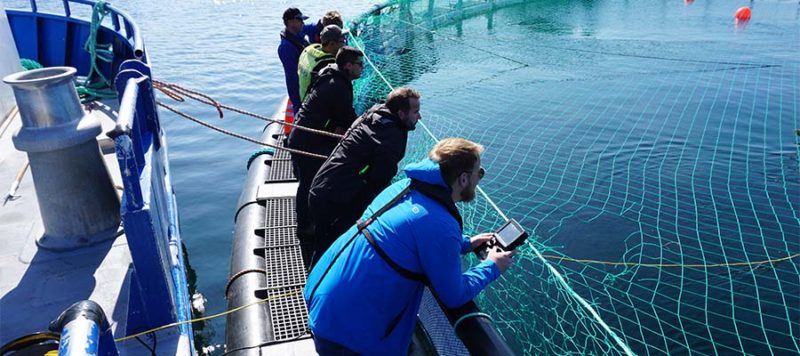Configure Now
Items in Your Cart0
0Items in Your Cart
Start building your packageShop Now

This week the Icelandic Food and Veterinary Authority received a notification from Arnarlax about a hole in one of the company’s nets at Hringsdalur, Arnarfjörður, north west Iceland.
The hole was discovered during a diver's inspection and measured 50x15cm, at a depth of 20m. Repairs have now been completed, but the firm is unsure of how long the hole was open, so escapes are a possibility.
Based on reports of fish escape incidents for salmon farming, more than two thirds of the registered escape incidents are related to holes in nets. Important measures to reduce escapees is mandatory, and can be done through regular net inspections. For this purpose, Deep Trekker Remotely Operated Vehicles (ROV) have proven to be a safe, effective and cost efficient method to achieve this.
While recording live footage to the operator or fish farmer, net inspections are performed by operating the ROV in a traversing pattern inside the cage and close to the net. The DTG2 ROV allows for a higher level of traceability and documentation for the integrity of aquaculture nets. Regular inspection leads to the prevention of loss of fish stock.
Deep Trekker's ROVs also aide in the monitoring of fish behaviour to avoid risk of potential contamination that can cause serious harm to consumers.
For more on how Deep Trekker is supporting the Aquaculture Industry, contact our specialists today
April 22nd, 2025
FLAIMS 2024 showcased SAR teams integrating ROVs, sonar, and drones, advancing...
April 4th, 2025
Join Deep Trekker and Navtech Radar at Ocean Business 2025 to...
April 3rd, 2025
Advanced ROV training at Deep Trekker Headquarters helped H2O Drones improve...